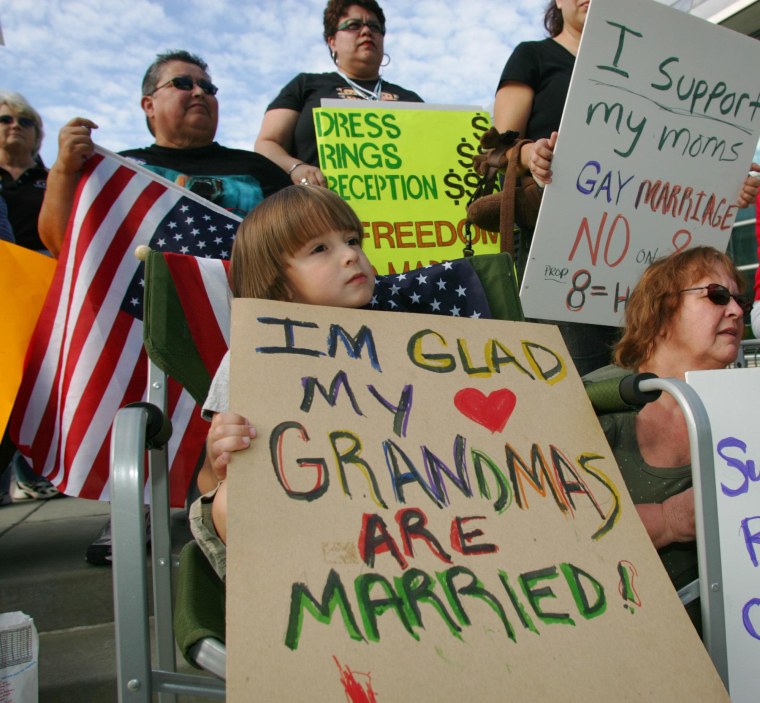The Supreme Court has decided to hear two marriage equality cases: United States vs. Windsor and Hollingsworth vs. Perry.
United States vs. Windsor is a federal challenge to the Defense of Marriage Act. The other, Hollingsworth vs. Perry, is a federal challenge to Proposition 8. Prop 8 is the California ballot measure that took away the right to marry from same-sex couples in the state back in 2008. The Prop 8 case has received the bulk of media attention because it came as somewhat of a surprise to the folks who follow these cases closely that the Supreme Court chose to hear that case.
On Friday's show, Ezra talked about whether public opinion has any bearing on the Supreme Court. If so, this is a particularly fascinating moment for the Court to hear these cases as public opinion about marriage equality is changing almost by the month.
Ezra also talked with constitutional law professor Kenji Yoshino that night. Kenji discussed some potential middle of the ground rulings in the Prop 8 case -- rulings that would not change the status quo in the entire country but would apply only to California or a handful of states. For example, here is one possibility with plenty of legal precedent: the Court could rule that a state can't give a group of people a right and then take that right away based solely on animus. From Kenji's SCOTUSblog post.
If the Court adopted this substantive rule, the decision would only affect the capacity of same-sex couples to marry in California, at least for the time being. No other state has permitted same-sex couples to marry before taking away the right. It would, however, preclude the nine states that currently permit same-sex marriage from withdrawing that right, unless they could show a rational basis for doing so.
That is one possible scenario. And if the court rules that way, the consequences would apply only to California and any other state where gay couples already have the right to marry. The Court is slated to hear the arguments in these cases in March and to rule in June.
